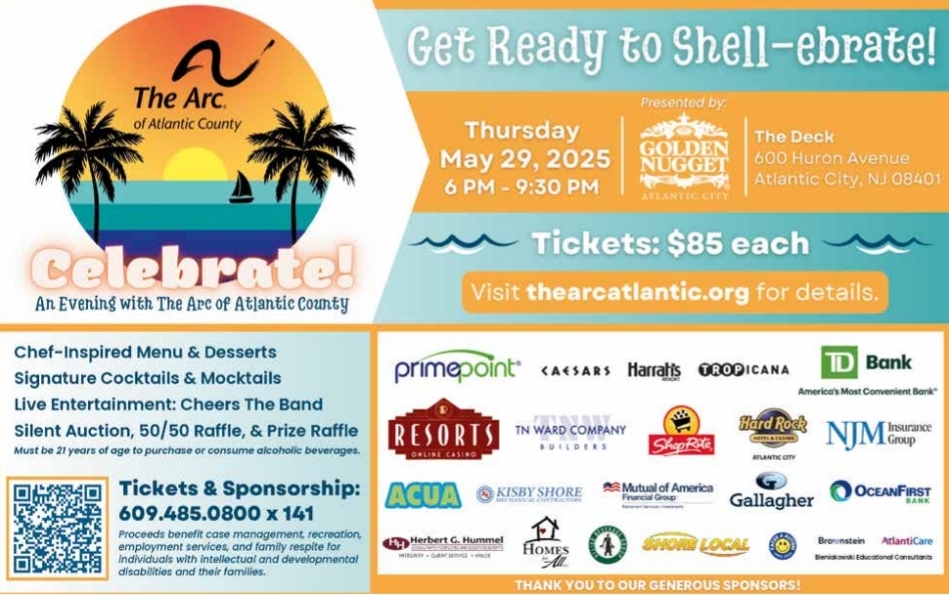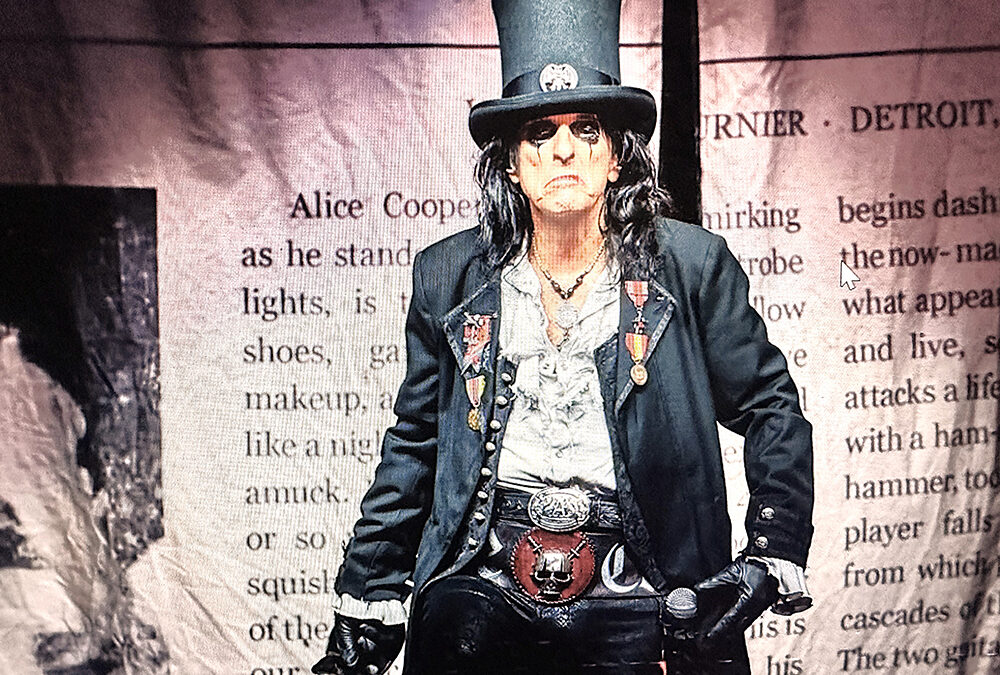The Casino File
By Chuck Darrow
Over the course of his nearly-60-year career, 1970s “shock-rock” icon Alice Cooper has sold some 50 million albums and remains a popular live attraction (if not the arena-filling sensation he once was). And he’s enshrined in the Rock & Roll Hall of Fame, which presumably confers some degree of immortality on the 77-year-old entertainer who, on May 24, returns to Ocean Casino Resort. But it says here that the man born Vincent Furnier has been, and continues to be, shortchanged reputation-wise:
It can be argued that Cooper is no garden-variety rock god, but one who has been as important to the popular culture of the past 50 years as anyone—and yes, that means anyone.
Let’s start with his greatest contribution:
When Cooper and his original band were germinating in Phoenix, Ariz. in the late 1960s, some rigid and ostensibly immutable lines had been drawn in the rock ‘n’ roll universe. It was the Woodstock Era, and the music of the Baby Boom generation wasn’t intended solely for entertainment purposes. Instead, it was the sonic flag flown by a generation intent on changing the world. As such, it had to be, in word and deed, a total rejection of the music – and show business – of what is respectfully known as the “Greatest Generation.”
To the Boomers, the show biz their parents (and grandparents) consumed was a symbol of everything that they insisted was wrong with America: Pop music–and entertainment in general–was at best, inconsequential and at worst, offensive, what with its almost total reliance on sentimentality, artifice, spectacle and schmaltz. If you wanted to matter to Woodstock Nation, you had to “keep it real” and strive for “relevance.”
And then, along came Alice.
In a universe that fetishized jeans, T-shirts and fringed leather vests, Cooper chose as his stage wear a rhinestone-studded leotard. He not only wore makeup, but deployed it to create a purposely nonhuman visage.
While there was an ascending class of first-generation classic-rockers (e.g. Mick Jagger, Roger Daltrey, Rod Stewart) who incorporated a degree of flamboyance into their live presentations, Cooper took rock showmanship to never-before-imagined heights, integrating into his kick-ass hard-rock act an operetta’s worth of props and devices, including a straitjacket and guillotine, which were featured in songs that explored mental illness, violent death and other elements of the dark side of humanity.
It’s important to note these items were used in cartoonish, over-the-top sequences with which Cooper clearly articulated the all-in-fun nature of his shows.
He likewise brought to the rock-concert realm outlandish costumes and ornate staging before David Bowie, KISS, Madonna, Beyonce, Lady Gaga and so many others for whom extravagant, sensory-overloading productions are an integral part of their brands.
Or, to put it another way, it was Alice who brought traditional show business to rock ‘n’ roll, thus creating a template that’s still used more than a half-century later.
A gender-bending pioneer
Apart from the aesthetic aspects of Cooper’s career, there’s also his ahead-of-his-time (if likely unintentional) activism on behalf of non-binary sexual orientation.
Cooper was undeniably an early sexual-identity disruptor. While his music was, like most high-decibel rock, extremely macho, his stage name resulted in gender-bending at a time when homosexuality wasn’t even universally legal in the United States.
Not to overstate the case, but it can be argued that Cooper added, in at least a small way, to society’s huge leaps in tolerance for, and acceptance of, the LGBTQ community.
The above is certainly enough for Cooper to have earned the gratitude and respect of the pop-music universe and society in general. But as they say on infomercials: Wait! There’s more!
A ‘hairy’ progenitor
I attended his November 2019 concert at Ocean (for the record, the first time I saw him was July 21, 1971, at The Spectrum in Philadelphia). It was about midway through the set when it hit me: Cooper’s brand of swaggering, high-volume and hook-laden guitar-based rock was the aural blueprint of every 1990s “hair band” (the subgenre’s practitioners also took visual cues from Cooper and his various backing bands). And while that format isn’t necessarily remembered altogether fondly today, it was a type of music beloved by millions in its time. And Alice was its spiritual father.
Furthermore his reach extends beyond hair metal: Let’s not forget the notorious Marilyn Manson was nothing more than a Gen-X copy of Cooper (without the latter’s sense of humor).
This is not to suggest Alice Cooper belongs on a Mt.-Rushmore-of-rock alongside Elvis Presley, Chuck Berry, Bob Dylan and The Beatles. But if a fifth artist were to be considered for that august, if theoretical, group, “Auntie Alice” would deserve to be a large part of the conversation.
This is why his upcoming Ocean gig is more than just another Atlantic City casino set by a classic-rock favorite. It’s also the opportunity to see in person an individual who can legitimately be celebrated as a true pop-culture game-changer.
For tickets, go to ticketmaster.com.
Chuck Darrow has spent more than 40 years writing about Atlantic City casinos.















